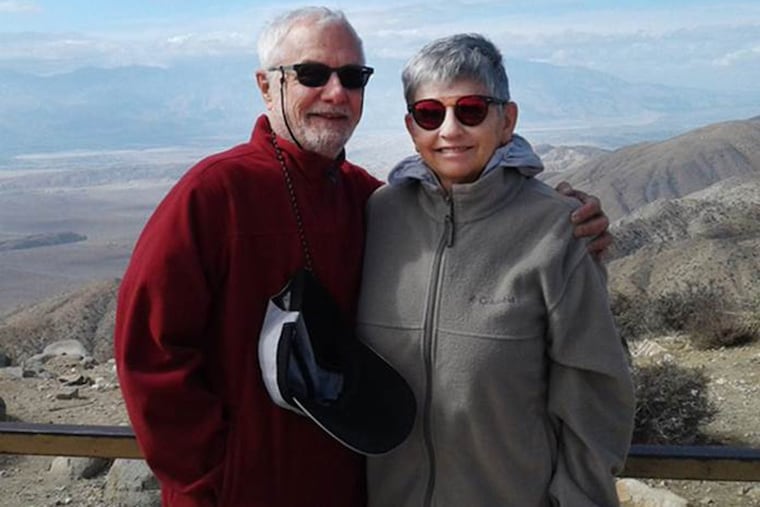FDA expands approval for world's first T-cell therapy
The world's first genetically engineered T-cell therapy, Novartis' Kymriah, on Tuesday received an additional approval to treat an aggressive form of lymphoma in adults.

The world's first T-cell therapy, Novartis' Kymriah, received an additional approval Tuesday to treat an aggressive form of lymphoma in adults, a market expansion that will save lives, and make the drug developed with the University of Pennsylvania far more lucrative.
The U.S. Food and Drug Administration's decision may also intensify concerns about affordability and access to the new class of personalized immunotherapy.
Liz Barrett, CEO of Novartis Oncology, said in a statement that approval gives the Swiss pharmaceutical giant "another opportunity" to deliver "potentially transformative therapy … to patients in dire need."
Kymriah — developed with Penn and Children's Hospital of Philadelphia – is made by siphoning each patient's T cells from the blood, genetically programming these immune soldier cells to attack malignant blood cells, then returning them to the patient.
Kymriah, or tisagenlecleucel, was first approved last August for a type of advanced pediatric leukemia, but that market is small. Even with a $475,000 price tag, the one-dose infusion brought in only $12 million in sales last quarter, Novartis reported.
>>READ MORE: The face of a medical revolution marks five years cancer-free — and her 12th birthday
The expanded approval is for adults who have repeatedly relapsed with diffuse large B-cell lymphoma, the most common form of non-Hodgkin lymphoma, a cancer of the lymph system. Although most of the 27,000 U.S. patients diagnosed each year are cured with conventional treatments, an estimated 6,500 exhaust these options. Novartis, which is also seeking approval in Europe and Japan, is expected to reap worldwide sales for Kymriah of about $156 million this year, according to market forecaster Evaluate Ltd.
However, Novartis will face competition. The world's second T-cell therapy, Gilead Science's Yescarta, was approved last fall for the same type of relapsed lymphoma. Its price tag is $373,000 — the same price that Novartis has set for Kymriah's lymphoma treatment.
Approval was based on Novartis' global trial, conducted with Penn. Out of 81 lymphoma patients, 40 percent saw their cancer disappear, and 30 percent remained cancer-free at six months. Experts say Kymriah's effectiveness appears to be comparable to Yescarta's.
They also say that the very idea of rescuing patients facing hopeless odds is astonishing.
"The results we're getting are unheard of in this patient population," said Jakub Svoboda, a Penn lymphoma specialist who was part of the Kymriah research team.
Penn's Stephen J. Schuster, leader of the global trial, said simply, "Many lives may be saved."
>>READ MORE: Penn study points to why T-cell therapy fails in some patients
Alan Gross, 78, is an example. Four years ago, his lymphoma returned for the fourth time, penetrating his colon, growing uncontrollably. He confided to his children that he was dying. That's when his wife, Jane Townsend — his partner in their former medical communications firm – found a last resort, Penn's clinical trial of T-cell therapy.
"I would say I was more desperate than optimistic," said Gross, who lives in Center City Philadelphia. "But two months after I got the T cells, I had no evidence of cancer."
Like most who get the therapy, he suffered several days of toxic side effects as his immune system went into overdrive. Although his symptoms were flu-like, about a quarter of patients in the global trial had severe or life-threatening reactions, including low blood counts and infections.
As part of approval, the company will create a registry to follow patients for 15 years to monitor for relapse and possible side effects.
Because T-cell technology and necessary hospital care can push the cost of treatment as high as $1 million, the advent of the revolutionary class of medicines is stirring concerns among hospitals, health insurers, and policy analysts. Dozens of T-cell drugs for blood cancer are in the pipeline, and scientists hope the approach can be extended to solid tumors.
Last month, the U.S. Institute for Clinical and Economic Review, which analyzes drug effectiveness and value, concluded that the pricing of Kymriah and Yescarta "aligns with patient benefit." But it also warned that the current payment model threatens to divert money needed for other health-care services or contribute to "unsustainable" growth in health-insurance costs.
"There will be changes needed in future pricing, payment, and delivery mechanisms to ensure patient access without threatening health system affordability," the report said.
Policy and cost issues aside, Gross hopes other patients experience his good fortune.
"I just got my three-year check-up. It feels like every day is an amazing day," he said. "I didn't think I'd be here. I can't imagine a better feeling."